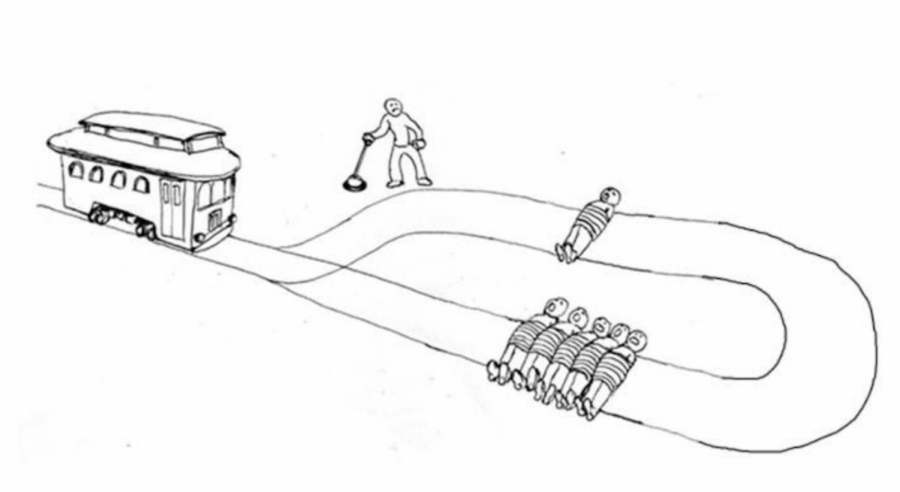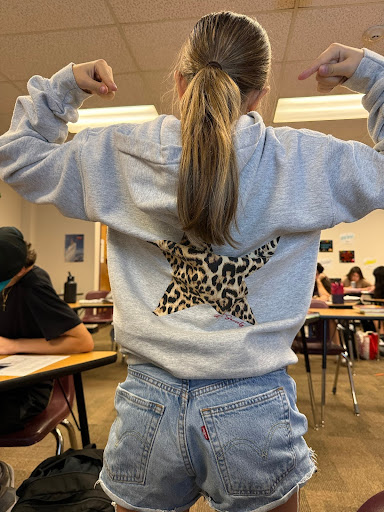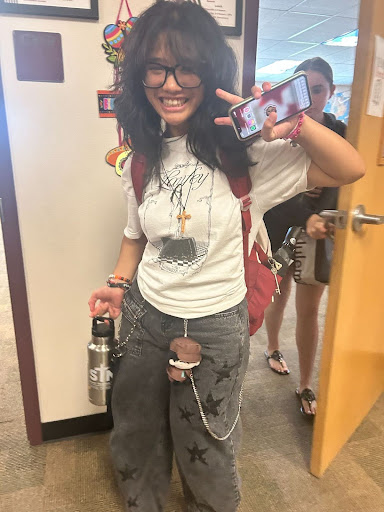The Trolley Problem
November 20, 2020
The Trolley Problem is one of the most popular moral dilemmas, and it can show how someone tends to think. There is no right answer to this problem, but a person’s ethics heavily play in on their decision. I’ve deemed it worth writing about simply because of how conflicting and interested it is.
The problem starts off with a runaway trolley coming and you being at the controls of a railway switch. Directly ahead, there are five people tied to the tracks, and there is one person tied to the side-track. If you do nothing, the trolley will kill the five people, but if you pull the lever, the trolley will turn and kill one person. Right away, many issues are present and the outcome relies on the person and what they believe.
Let’s say you decide to do nothing and the trolley kills the five people on the main track. The pro about this is that you will not be responsible for their deaths since you chose to do nothing. But this presents a new issue; a larger quantity of people have died when you could’ve just killed one. People often let their selfishness sway their decision, not wanting to have any blood on their hands.
If you decide to pull the lever, the trolley turns and kills one person. You have saved a greater number of people but it is now your fault for the death of this one person. You will have to live knowing you are responsible for killing one person, but saved five. People may choose this because they believe it is for the greater good.
This problem is used to show the thought process of utilitarians and kantians. Utilitarians will choose what they believe will produce the greatest amount of happiness, while kantians will choose what acts on all people, despite interests or desires. To maximize happiness, utilitarians will choose to kill one person so the other five are saved. To follow rules that can be held out for everyone, kantians will choose to kill the five people and save the one.
As said before, there is no right answer to this dilemma. Each side is meant to have its flaws, and that leaves it to the person to decide what aligns with their morals. Although, there are many issues with the problem itself because it doesn’t accurately depict someone’s ethics. People may choose differently in a scenario than in reality due to the actual pressure of the situation.
The Trolley Problem primarily focuses on the decisions but not the context. Who put us here? Why are we here? Who are these people? It is heavily unrealistic, meaning our morals are loosely applied to it. In the end, either choice has its consequences and it won’t matter what you choose.
But still, what would you choose? You should let us know, it’s worth talking about.





